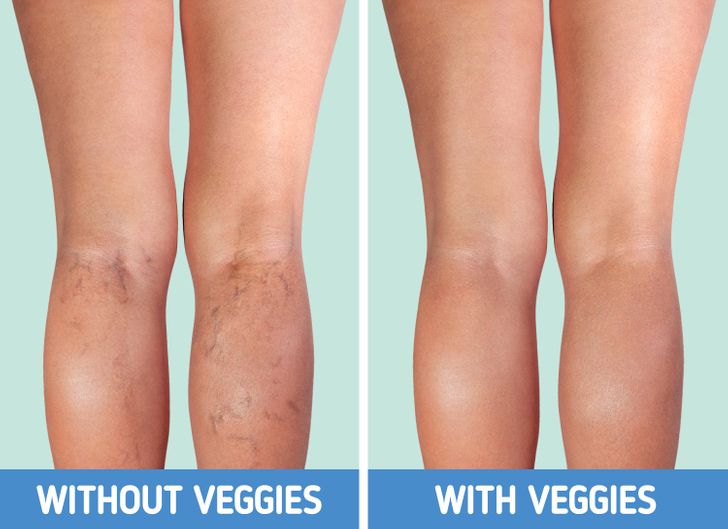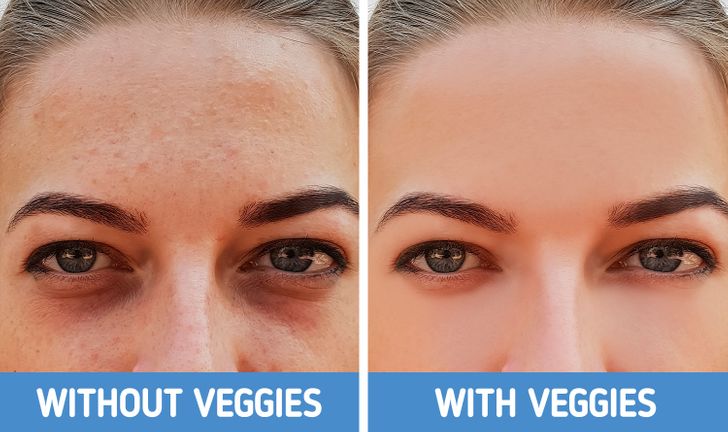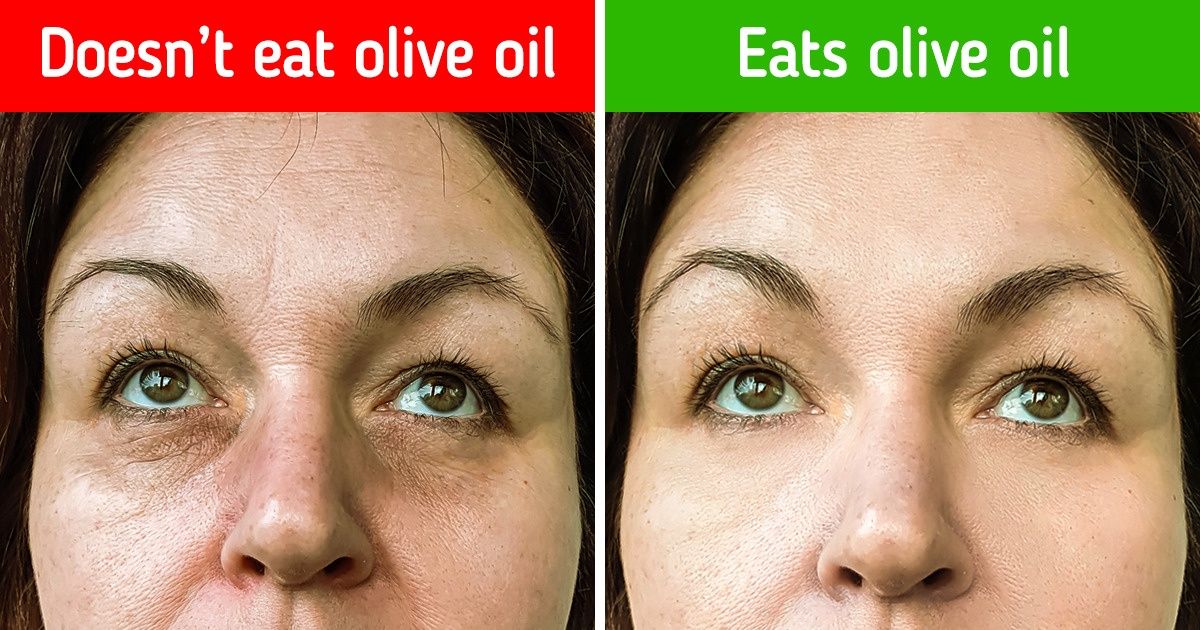Skipping fruits and vegetables can have dramatic impacts on your health. In a world where processed foods and fast meals are increasingly common, many people are unknowingly compromising their health by not getting enough natural produce. Fruits and veggies are packed with essential vitamins, minerals, antioxidants, and fiber that support nearly every bodily function—from vision to digestion and mental health. In this in-depth article, we explore seven significant changes that may occur if you stop eating fruits and vegetables, and why these nutrient powerhouses are crucial for maintaining a healthy lifestyle.
Impaired Night Vision and Eye Health Decline

Fruits and vegetables are rich sources of vitamin A, beta-carotene, and other antioxidants that play a vital role in maintaining eye health. Without a regular intake of these nutrients, you may experience impaired night vision and other visual problems.
Vitamin A is crucial for the production of rhodopsin, a pigment in the retina that helps you see in low-light conditions. A deficiency in this vitamin can lead to a condition known as night blindness. Additionally, antioxidants like lutein and zeaxanthin, found in leafy greens and colorful fruits, help protect the eyes from oxidative damage and reduce the risk of cataracts and age-related macular degeneration. According to Harvard Health Publishing, diets rich in these antioxidants are associated with a lower risk of various eye diseases.
Increased Body Odor and Unpleasant Smells

One surprising consequence of cutting out fruits and vegetables is that your body may start to smell worse. A healthy diet rich in produce helps balance the body’s pH levels and supports a robust metabolism, which in turn helps eliminate toxins efficiently.
Fruits like citrus and vegetables such as leafy greens contain high levels of water and essential nutrients that aid the liver and kidneys in detoxifying the body. When these foods are removed from your diet, the body may struggle to expel waste, leading to a buildup of toxins that can cause unpleasant body odor. Research published by Medical News Today highlights the role of natural detoxifiers in maintaining fresh body scent.
Increased Risk of Depression and Mental Health Issues

The link between diet and mental health has become increasingly clear. Fruits and vegetables are not only essential for physical health but also for maintaining balanced mood and brain function. When you stop consuming these nutrient-rich foods, you may experience an increased risk of depression and other mental health issues.
Fruits and vegetables provide a wealth of antioxidants, vitamins (such as folate and vitamin C), and minerals like magnesium that are essential for neurotransmitter synthesis and brain function. A deficiency in these nutrients has been linked to mood disorders and cognitive decline. According to Harvard T.H. Chan School of Public Health, diets low in fruits and vegetables are associated with a higher incidence of depression and anxiety. Additionally, the lack of fiber can lead to imbalances in gut bacteria, which have been shown to influence mood and mental health—a concept known as the gut-brain axis.
Rising Blood Pressure and Cardiovascular Strain

Fruits and vegetables are well-known for their cardiovascular benefits. They are naturally low in sodium and high in potassium, a balance that is critical for regulating blood pressure. Without these foods, your blood pressure may start to climb, putting additional strain on your heart and increasing the risk of heart disease.
High blood pressure, or hypertension, is a major risk factor for heart attacks and strokes. Diets rich in fruits and vegetables help maintain vascular health by providing antioxidants that reduce inflammation and improve arterial function. Studies, such as those cited by the American Heart Association, emphasize that a diet abundant in produce is essential for preventing cardiovascular diseases. Removing these foods from your diet may lead to imbalances in electrolytes and a buildup of harmful compounds, ultimately contributing to heart problems.
Development of Digestive Problems and Gut Imbalances

A diet devoid of fruits and vegetables can have a severe impact on your digestive system. These foods are a primary source of dietary fiber, which is crucial for maintaining a healthy digestive tract. Without sufficient fiber, you may experience constipation, bloating, and other gastrointestinal issues.
Fiber plays an essential role in regulating bowel movements and promoting the growth of beneficial gut bacteria. A lack of fiber can lead to an imbalance in the gut microbiome, potentially causing inflammation and increasing the risk of conditions like diverticulitis. Research published by Mayo Clinic confirms that diets high in fiber are linked to a lower risk of digestive disorders. Moreover, fruits and vegetables contain natural enzymes that aid in digestion and help break down food more efficiently.
Increased Risk of Blood Clots and Vascular Issues

One of the less discussed yet serious consequences of eliminating fruits and vegetables from your diet is an increased risk of developing blood clots in your veins. These nutrient-dense foods provide essential vitamins and minerals, such as vitamin K, that help regulate blood clotting processes.
Vitamin K is critical for the synthesis of proteins involved in blood clotting. While a deficiency might lead to bleeding disorders, an imbalance can also predispose individuals to abnormal clot formation. Furthermore, the antioxidants in fruits and vegetables help reduce inflammation and improve blood vessel function, thereby lowering the risk of clot formation. According to a study in the Journal of the American College of Cardiology, diets rich in produce are associated with a reduced risk of thrombotic events, emphasizing the importance of fruits and vegetables in maintaining vascular health.
Uneven Skin Tone, Dark Circles, and Other Skin Issues

Your skin is a reflection of your internal health, and the nutrients you consume play a significant role in its appearance. Cutting out fruits and vegetables can result in an uneven skin tone, the development of dark circles under the eyes, and other skin issues.
Fruits and vegetables are rich in vitamins, such as vitamin C and E, which are essential for collagen production and skin repair. Collagen is the protein responsible for maintaining skin elasticity and firmness. A deficiency in these nutrients can lead to premature aging, dry skin, and an uneven complexion. Additionally, antioxidants found in these foods help protect the skin from oxidative stress caused by environmental factors like pollution and UV rays. The American Academy of Dermatology notes that a balanced diet rich in produce contributes significantly to skin health and vitality.
How Fruits and Vegetables Support Overall Health
The benefits of fruits and vegetables extend far beyond the specific issues mentioned above. Here’s a closer look at how these natural foods support overall health:
Boost Immunity: The vitamins, minerals, and antioxidants in fruits and vegetables help fortify your immune system, reducing the risk of infections and chronic diseases.
Enhance Energy Levels: Natural sugars found in fruits provide a quick source of energy, while fiber helps maintain steady blood sugar levels, keeping you energized throughout the day.
Improve Mental Clarity: The antioxidants in produce protect brain cells from oxidative stress, contributing to better memory and cognitive function.
Support Weight Management: High in fiber and low in calories, fruits and vegetables help you feel full longer, reducing overall calorie intake and aiding in weight loss.
By incorporating a variety of fruits and vegetables into your diet, you’re ensuring that your body receives a comprehensive range of nutrients necessary for optimal health. The consistent consumption of these foods is linked to a lower risk of chronic diseases, including heart disease, diabetes, and certain cancers.
Strategies to Ensure Adequate Intake of Fruits and Vegetables
If you’re concerned about the potential health risks associated with a low intake of fruits and vegetables, here are some practical strategies to help boost your consumption:
Plan Your Meals: Design your daily meal plan to include a variety of fruits and vegetables. Aim for at least five servings per day.
Snack Smart: Keep fresh fruits like apples, berries, or oranges readily available for a quick, healthy snack.
Experiment with Recipes: Try new recipes that incorporate a diverse range of produce. Smoothies, salads, and stir-fries are great ways to include more fruits and vegetables in your diet.
Seasonal Choices: Take advantage of seasonal produce for the freshest flavors and maximum nutritional benefits.
Incorporate Them in Every Meal: Whether it’s adding spinach to your morning omelet or enjoying a vegetable soup for lunch, find creative ways to include fruits and vegetables throughout the day.
These strategies not only improve your nutritional intake but also contribute to better overall health and vitality.
External Resources for Further Information
For more detailed insights on the benefits of a diet rich in fruits and vegetables, consider exploring the following reputable sources:
- Harvard T.H. Chan School of Public Health – Comprehensive research on nutrition and health.
- American Heart Association – Articles on cardiovascular health and diet.
- Mayo Clinic – Evidence-based guidelines on digestive health and nutrition.
- Medical News Today – Latest updates on dietary research and health news.
- American Academy of Dermatology – Tips on maintaining healthy skin through nutrition.
Conclusion
Eliminating fruits and vegetables from your diet can trigger a cascade of negative health effects, ranging from impaired vision and increased body odor to depression, high blood pressure, digestive issues, blood clots, and poor skin quality. These natural foods are fundamental to maintaining a balanced, healthy lifestyle. They provide essential vitamins, minerals, antioxidants, and fiber that support everything from eye health to cardiovascular function and mental clarity.
By understanding the consequences of a fruit- and vegetable-deficient diet, you can appreciate the importance of incorporating these nutrient-dense foods into your daily routine. Whether it’s preventing night blindness, reducing the risk of depression, or ensuring smooth digestion, the benefits are clear. Prioritizing fruits and vegetables not only enhances your physical health but also supports your overall well-being, contributing to a more vibrant, energetic life.
In a fast-paced world where convenience often trumps nutrition, taking the time to plan balanced meals rich in produce can make all the difference. Empower yourself with knowledge and commit to a diet that fuels your body with the natural goodness it needs. Your health—and your future—depend on it.
Embrace the benefits of fruits and vegetables today and safeguard your long-term health. Your body will thank you with improved vision, a fresher scent, better mental health, lower blood pressure, efficient digestion, reduced risk of vascular issues, and a radiant complexion. Make the switch, and discover the transformative power of a diet rich in nature’s bounty.









